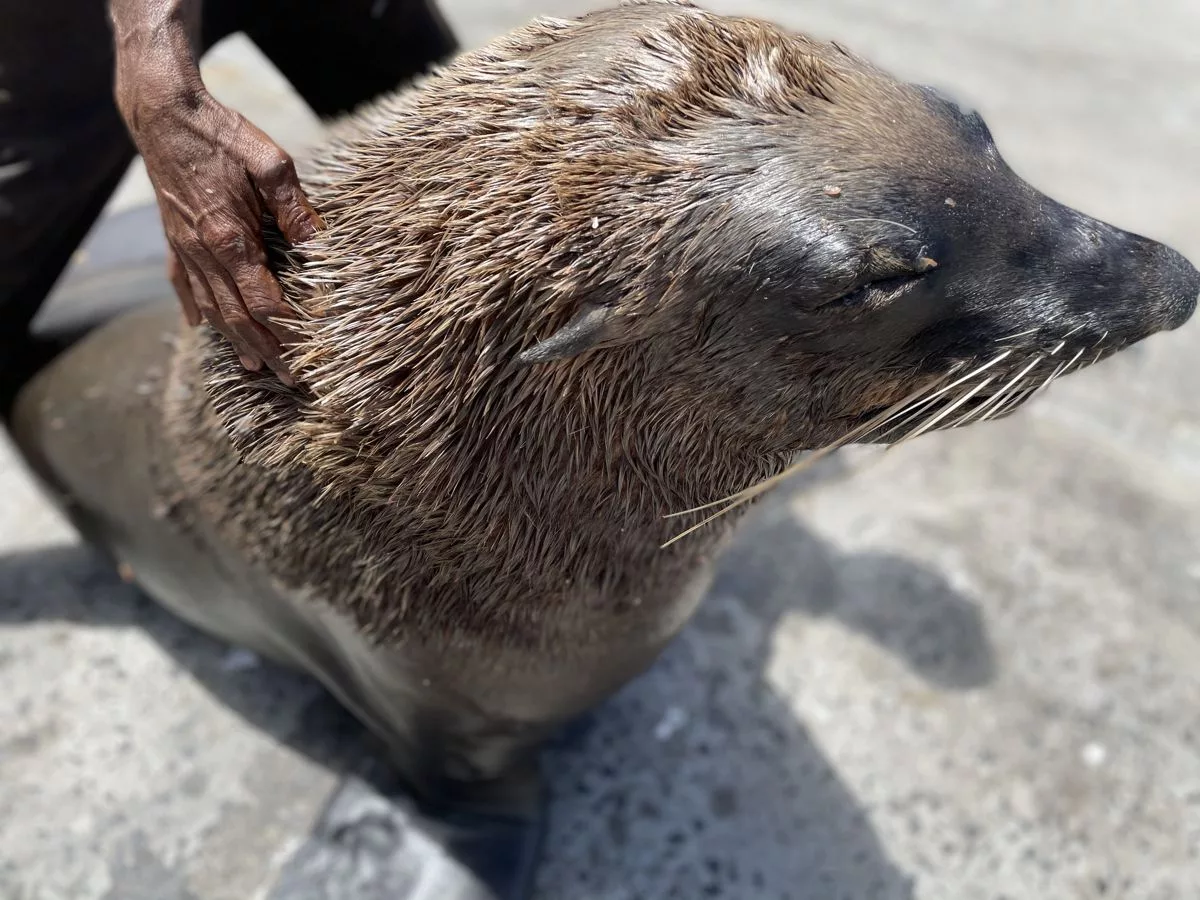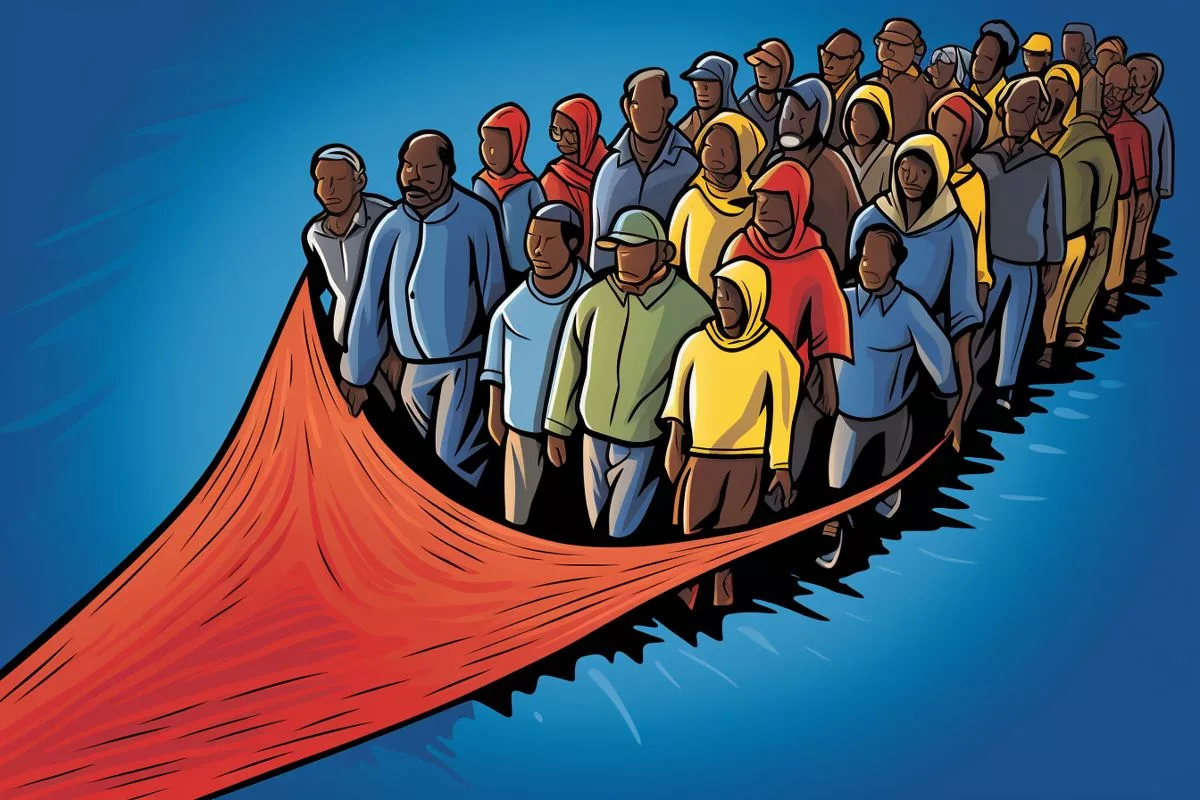Seals at Hout Bay Harbour in South Africa were abused and exploited by humans for entertainment and money. Tourists paid for the rare experience of feeding and interacting with the seals, perpetuating a cycle of abuse. The Cape of Good Hope SPCA has taken legal measures to protect these seals from further distress, highlighting the emotional and physical cost these wild creatures pay for human interactions. This story serves as a reminder of our ethical responsibilities and the pressing need to safeguard and respect all life forms.
What happened to the seals at Hout Bay Harbour?
A group of seals at Hout Bay Harbour in South Africa were subjected to physical abuse and overfeeding for the entertainment and monetary benefits of humans. Tourists were asked to pay for the rare experience of feeding and interacting with the seals, perpetuating a cycle of abuse. Two seals were made obese due to unnatural lifestyle, and their reliance on humans created a perilous situation. The Cape of Good Hope SPCA has taken legal measures to protect these seals from further distress.
An Unveiled Atrocity in a Scenic Setting
In the picturesque expanse of Hout Bay Harbour, resting on the apex of South Africa, a recent appalling occurrence has been exposed. A group of five seals, beings of purity and charm, have become victims to unspeakable atrocities, inflicted with forceful physical contact and exploited for the entertainment and monetary benefits of humans. In response to this, Cape of Good Hope SPCA, a distinguished institution dedicated to animal welfare, has taken legal measures to protect these innocuous creatures from further distress.
The agonizing narrative of these five seals unfolds amidst a backdrop of exploitation, where monetary benefits overshadow the fundamental rights of these regal beings. The seals have been subjected to savage assaults, overfeeding, and enforced interactions with humans. All such malevolent activities are fuelled by human avarice – the quest for entertainment and the prospect of monetary benefits drawn from unsuspecting tourists.
Tourists are asked to pay for the rare experience of feeding and interacting with these seals, inadvertently participating in a horrific cycle of abuse. Despite numerous interventions, inclusive of arrests of culprits and penalties, these activities continue, driven by the profitable outcomes gained by the seal ‘handlers’.
The Cost of Human Amusement
However, it’s not merely the blatant disregard for laws that’s alarming. The moral decline represented by such behaviors is also disconcerting. In their proclamation, the SPCA underscored the exorbitant emotional and physical price these wild creatures pay for human interactions. Apart from the stern training routines they are subjected to, the seals are also deprived of their natural behaviors and subject to gross overfeeding.
Two of the seals have been made obese due to this unnatural lifestyle. The rigorous training they have undergone, their incapacity to swim and hunt for their own sustenance, combined with the incessant feeding by humans seeking selfies, have led to their unhealthy state. These conditions have habituated the seals to humans, creating a situation perilous for both seals and humans.
It’s not just about the seals becoming reliant on humans for sustenance. Humans also risk being harmed when the seals’ demand for food is not fulfilled. SPCA’s Chief Inspector Jaco Pieterse provided deeper insight into this matter, emphasizing that leveraging these animals for social media fame is not only ethically incorrect, but it also perpetuates a cycle of abuse and cruelty.
A Call for Greater Responsibility
This story is imbued with the harsh reality of human unawareness and greed, a stark reminder of our duty towards the creatures that inhabit our world. The predicament of these five seals compels us to face the unsettling truth of animal exploitation and question the ethics of our actions.
The call to action is lucid: the well-being of these innocent beings should take precedence over social media popularity. Their lives and dignity should not be sacrificed for amusement or financial gain. As we traverse our intricate relationship with Nature, let this event serve as a potent reminder of our ethical responsibilities and the pressing need to safeguard and respect all life forms.
In today’s world, where the wonders of nature are frequently eclipsed by the charm of commercialization, let’s endeavor to maintain equilibrium. Let’s ensure that the splendor of our environment is not marred by the blotch of exploitation. Let’s advocate for the rights of these seals and all wild animals, acknowledge their rights, offer them freedom, and relish their existence. The battle for their welfare is not just their battle; it is ours too, for our morality and for the legacy we want to pass on to future generations.
What legal measures have been taken to protect the seals at Hout Bay Harbour?
The Cape of Good Hope SPCA has taken legal measures to protect these seals from further distress, including the arrests of culprits and penalties. The organization is also advocating for the rights of these seals and all wild animals, acknowledging their rights, and offering them freedom.
What has been the emotional and physical cost to the seals due to human interactions?
The seals at Hout Bay Harbour have been subjected to physical abuse, overfeeding, and enforced interactions with humans. They have undergone rigorous training routines, which have deprived them of their natural behaviors and led to two of the seals becoming obese due to unnatural lifestyles. The seals’ reliance on humans has created a perilous situation for both seals and humans.
Why have tourists been paying for the rare experience of feeding and interacting with the seals?
Tourists have been paying for the rare experience of feeding and interacting with the seals for entertainment and monetary benefits, perpetuating a cycle of abuse. The handlers of the seals have been profiting from the tourists’ unwitting participation in this horrific cycle.
What is the Cape of Good Hope SPCA?
The Cape of Good Hope SPCA is a distinguished institution dedicated to animal welfare in South Africa. The organization takes legal measures to protect innocent animals from distress and advocates for the rights of all wild animals, acknowledging their rights, offering them freedom, and maintaining equilibrium in the relationship between humans and nature.
Why is it important to safeguard and respect all life forms?
It is important to safeguard and respect all life forms because of our ethical responsibilities towards the creatures that inhabit our world. Exploitation and cruelty towards animals perpetuate a cycle of abuse and mar the splendor of our environment. Advocating for the rights of animals is not only their battle, but it is also ours too, for our morality and for the legacy we want to pass on to future generations.
How can we prevent animal exploitation and cruelty?
We can prevent animal exploitation and cruelty by advocating for the rights of animals, acknowledging their rights, offering them freedom, and maintaining equilibrium in the relationship between humans and nature. We can also raise awareness about the emotional and physical cost that animals pay for human interactions and question the ethics of our actions. Additionally, we can support organizations like the Cape of Good Hope SPCA, which takes legal measures to protect innocent animals from distress.












